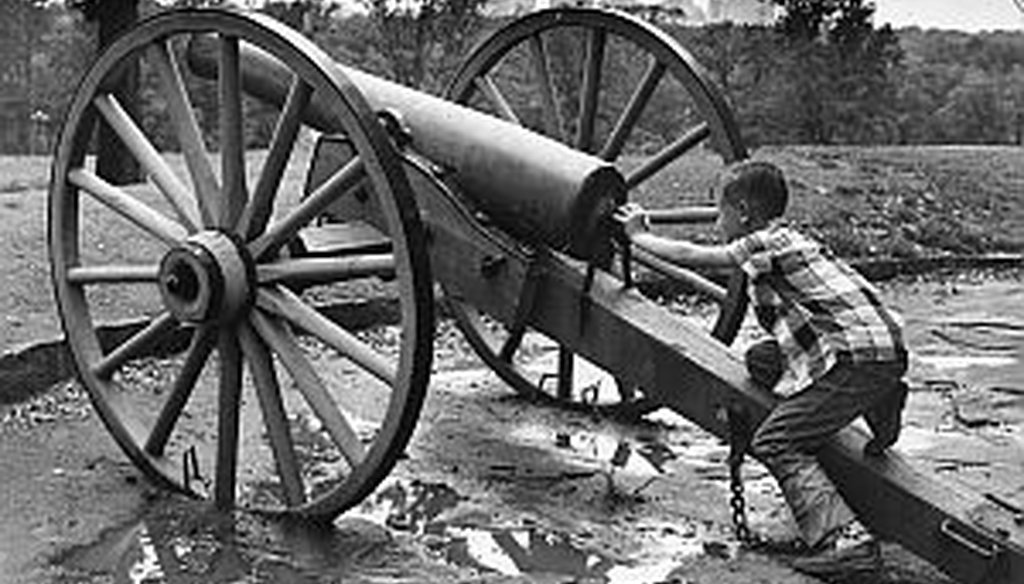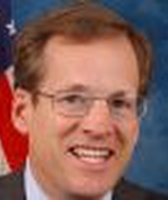Get PolitiFact in your inbox.

AJC PolitiFact Georgia fact checked a claim on the Civil War last week. Verdict: Pants on Fire.
Last week, AJC PolitiFact Georgia's Truth-O-Meter emerged from its holiday slumber and rattled its saber.
First, it made quick work of claims on subjects including corporate tax rates, Atlanta's budget and whether DeKalb is the "greenest" county in America.
Then, in honor of the Civil War's sesquicentennial, it burned some britches for a group's claim that blacks fought in droves for the Confederacy.
The Truth-O-Meter takes no prisoners.
Join us on Twitter and Facebook to comment and read our latest updates.
DeKalb County: DeKalb is "the Greenest County in America."
In metro Atlanta, the land of smog alerts and farmland-turned-to-suburbs, DeKalb County makes a bold claim: It's "the greenest county in America," according to its website.
DeKalb's communications director sent PolitiFact Georgia an e-mail with evidence. The list included the county's green construction rules and a statement that the county had the most hiking and biking trails in Georgia.
We found DeKalb's argument had weaknesses.
The Robert Wood Johnson Foundation, a nonprofit group to improve the health of Americans, ranked DeKalb near the bottom of Georgia counties in an environmental health category. The criteria included how many days the air was unhealthy and access to healthy foods.
DeKalb may have green construction rules, but Gwinnett had three green certified structures. And while DeKalb claims 48 miles of hiking and biking trails, Cobb County lists about 75 miles.
And then there's the DeKalb sewage problem. In December, the U.S. Environmental Protection Agency fined $453,000 for 836sewage spills over the last five years.
Barely True.
Atlanta Mayor Kasim Reed: The city of Atlanta has $56 million in its reserves.
Government leaders are constantly searching for every spare dollar to keep things running in this sluggish economy.
So it surprised us when Reed made this claim:
"When I came in, the reserves of the city of Atlanta were $7.4 million, "Reed said in a speech Nov. 30."As I stand here ... the reserves of the city of Atlanta are in excess of $56 million."
Is this correct?
In June 2009, the City Council voted to put $27 million in its general fund reserve and raise property taxes to build a rainy-day fund.
Revenue was $13 million above expectations. Several city agencies spent much less than budgeted, and Atlanta re-examined its lease agreements and engaged in new spending practices.
A certified public accountant reviewed the city's monthly budget spreadsheets at AJC PolitiFact's request and said Reed's claim seems on the money. But the city's fiscal year 2010 books haven't been audited yet.
For now, we'll be a little conservative and rate Reed's statement as Mostly True.
Standard & Poor's chief economist David Wyss: State governments have little ability to stimulate job growth in the short run.
Georgians need jobs. Last election season, that's just what politicians promised.
But during a boot camp for state legislators in December, Wyss said there's little Georgia government can do to kick-start the labor market for the near term.
"It doesn’t work well on the state level because states can’t run budget deficits," Wyss said in a Dec. 13 article in The Florida Times-Union.
But what about all those promises politicians made?
Wyss stressed that state government can enact policies that foster long-term job growth. But in the short term, state legislators and governors don't have many options.
If the state decides to cut taxes or spend money to stimulate business growth, it has to come up with the lost revenue somewhere else.
AJC PolitiFact Georgia asked seven experts with wide-ranging perspectives for their input. They placed the state's ability to create jobs for the short term between limited and marginal. None argued that state government could cause an immediate, major gain.
We find Wyss' statement True.
U.S. Sen. Pat Toomey (R-Pa.): "We have the highest [corporate tax rates] in the world right now."
On the Jan. 2 edition of NBC's "Meet the Press," Toomey urged the United States to lower its corporate tax rates.
Toomey gave several suggestions, including changing tax policy. He added we have the highest corporate tax rates in the world.
Is that true?
Using the most straightforward definition of "corporate tax rates," he is. Among the Organization for Economic Cooperation and Development, a group of 32 large, industrialized democracies, we're the highest for 2011.
Many companies pay considerably less than that, due to deductions and other exclusions. A measure by the World Bank takes this into account and determined we're in the top four among larger, industrialized economists.
Another World Bank statistic that factors in those exclusions plus other taxes paid by businesses places us relatively high, but behind a few large and/or democratic countries.
Still, if you rate Toomey on his specific wording by looking at "corporate tax rates," he's right.
Mostly True.
Sons of Confederate Veterans Georgia Division spokesman Ray McBerry: "You’ll find blacks in almost every regiment throughout the South who fought right alongside white Southerners," during the Civil War.
As the Civil War's 150th anniversary approaches, some Southerners are belting out a rebel yell.
The History Channel recently dropped commercials produced by McBerry's group about the Civil War. McBerry criticized them on an Atlanta radio station WABE-FM (90.1) in December and made the above claim.
But historians typically scoff at the idea. The Confederate Army barred blacks from enlisting until weeks before the end of the war.
There are anecdotes where blacks worked as sharpshooters and even killed Union soldiers in battle. Yet even if you accept all of them, they don't prove McBerry's case. These were isolated incidents given 500,000 to 2 million Confederate soldiers took part in the war.
Furthermore, blacks would have to have battled overwhelming obstacles to fight for a regime that enslaved them. Thousands would have had to bear arms although it was illegal and ally with armed whites who did not want them as comrades.
Pants on Fire.
Our Sources
See original items.

















































